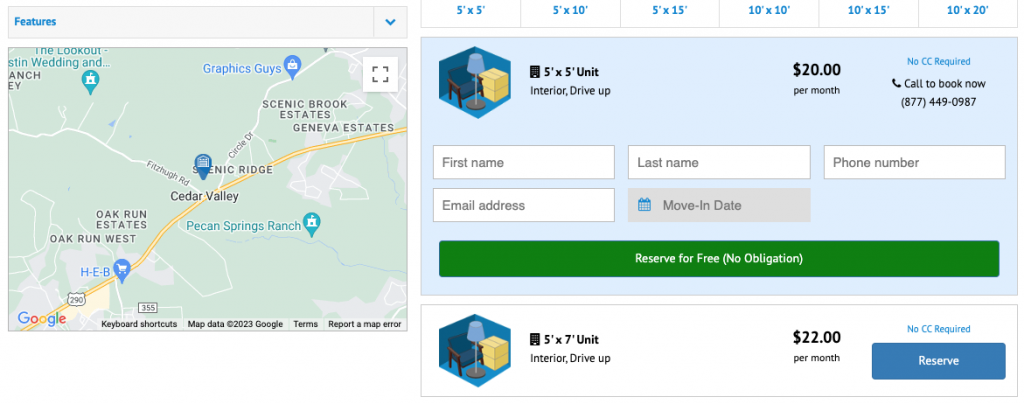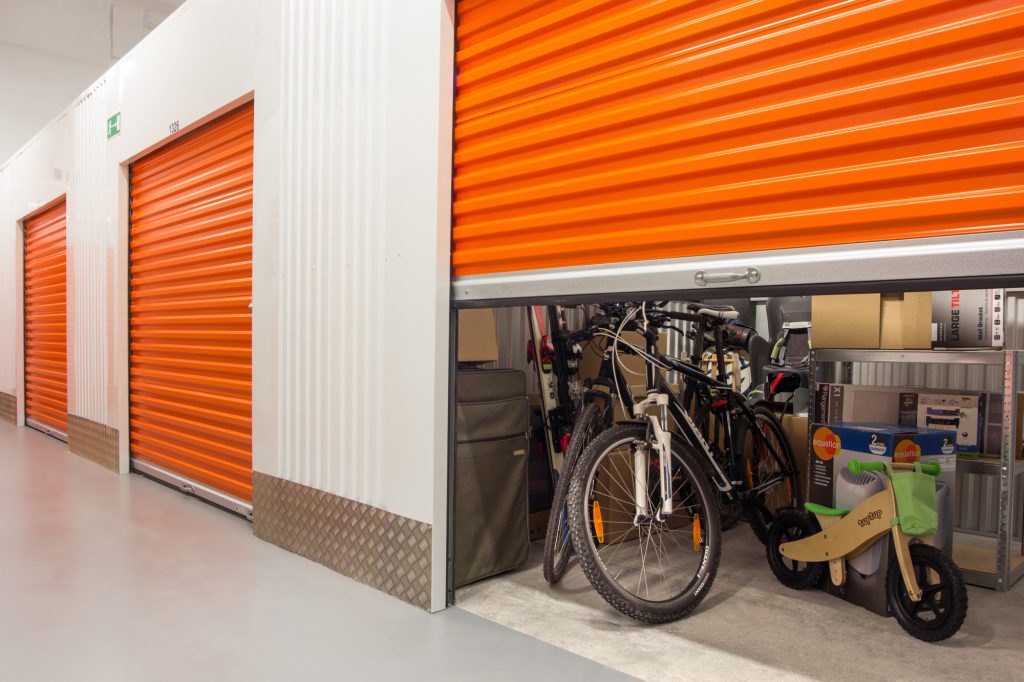
Hiding Christmas presents in a self-storage unit can be a creative way to keep surprises from prying eyes. I know this may seem like an extreme and expensive option, but it can be done in a cost effective manner. For example, there are several options for 5 X 7 units at a price of $22 per month. Case in point, the above image is from Life Storage in Austin, TX.
Here are some tips to help you do it effectively and securely, in a city near you:
- Choose a Secure Facility: Select a reputable and secure self-storage facility with good reviews. Look for features such as surveillance cameras, access control systems, and well-maintained premises.
- Rent a Climate-Controlled Unit: If possible, choose a climate-controlled storage unit to protect delicate items from temperature and humidity fluctuations.
- Pack and Label Boxes Discreetly: Pack your Christmas presents in nondescript boxes to avoid drawing attention. Use plain or generic labels without indicating the contents. You can also use codes or numbering systems only you understand.
- Disguise Items in Storage Containers: Place your gifts inside other items like storage bins, furniture, or large containers. This adds an extra layer of disguise and makes it less likely that someone will stumble upon them.
- Camouflage with Everyday Items: Blend your gift boxes with everyday items such as household goods or seasonal decorations. Consider placing your presents inside bins labeled as ordinary household items.
- Use Blankets or Tarps: Cover your items with blankets or tarps to obscure their shapes and make them less noticeable. This can also add a layer of protection against dust.
- Strategic Placement: Strategically place your gift-containing boxes toward the back of the unit, behind other items. This makes it less likely for someone to accidentally come across them.
- Visit Discreetly: When visiting the storage unit, try to do so inconspicuously. Be mindful of who might be around, and avoid drawing attention to the items you’re storing.
- Inform Trusted Individuals: If you share access to the storage unit with others, communicate with them to ensure they are aware of the presence of hidden gifts and won’t accidentally stumble upon them.
- Keep Valuables Secure: If your gifts include valuable items, consider adding an extra layer of security such as a lock on the storage unit or a lock on the individual boxes.
Remember to check the terms and conditions of your storage unit rental agreement to ensure you’re following the facility’s rules. Additionally, be aware of any local laws or regulations related to storage units and the items you plan to store.





